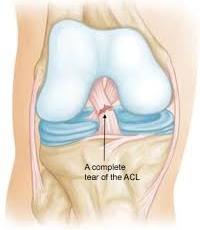
Knee replacement
Knee Meniscus repair
Anterior Cruciate Ligament repair
Knee arthroscopy
Sports injuries
Mr James Hart — Consultant Orthopaedic Knee Surgeon in London
Specialising in ACL Reconstruction, Meniscus Surgery, Osteotomy, and Young Adult Knee Preservation
Mr James Hart is a leading orthopaedic surgeon based in London, with over 30 years of clinical experience in complex knee surgery. He specialises in anterior cruciate ligament (ACL) reconstruction, osteotomy, revision ligament surgery, kneecap realignment, meniscus repair and joint preservation surgery for young adults. Renowned for his meticulous surgical technique and patient-centred approach, Mr Hart is one of the UK’s foremost authorities on knee injury treatment and rehabilitation.
After graduating with honours in Medicine and Surgery (MBBS) from the University of London in 1990, Mr Hart completed his specialist training in trauma and orthopaedics through the prestigious Royal College of Surgeons fellowship programme, earning the FRCS (Orth) qualification. He later undertook a highly regarded knee surgery fellowship at the University of New South Wales in Australia, gaining advanced expertise in managing sports injuries and complex knee conditions.
Mr Hart has served as a Consultant Orthopaedic Surgeon at Guy’s and St Thomas’ NHS Foundation Trust for the past 19 years, where he is also Director of the Knee Service. His practice is at the forefront of modern orthopaedic techniques, combining evidence-based care with the latest advancements in minimally invasive surgery and biologics.
Throughout his career, Mr Hart has been recognised for academic and clinical excellence. He received the prestigious Walter Mercer Gold Medal for his outstanding performance in trauma and orthopaedic training, and multiple awards during his medical education, including MBBS Surgery Honours and an FRCS examination distinction.
In addition to his clinical work, Mr Hart plays a vital role in surgical education. He trains the next generation of orthopaedic surgeons in advanced knee procedures and serves as an Intercollegiate Examiner for the FRCS (Orth), helping to uphold standards in orthopaedic surgery across the UK.
Mr James Hart is dedicated to delivering expert diagnosis, personalised treatment plans, and optimal outcomes for patients with knee problems — from elite athletes to individuals seeking to regain their mobility and quality of life.
Specialties and Clinical Interests:
ACL reconstruction and revision
Meniscus repair and transplant
Osteotomy and joint preservation surgery
Patellofemoral (kneecap) stabilisation
Ligament reconstruction
Sports injury management
Complex knee revision surgery
Hospital Appointments:
Consultant Knee Surgeon, Guy’s and St Thomas’ NHS Foundation Trust, London
Education and Qualifications:
MBBS with Honours, University of London (1990)
FRCS (Orth), Royal College of Surgeons of England
Knee Fellowship, University of New South Wales, Australia
Professional Memberships:
British Association for Surgery of the Knee (BASK)
Royal College of Surgeons of England
European Society of Sports Traumatology, Knee Surgery and Arthroscopy (ESSKA)
Languages Spoken:
English
Trust and Recognition:
Over 30 years of orthopaedic surgery experience
Award-winning clinician and surgical educator
Trusted by patients and peers for excellence in knee care
MBBS, FRCS, FRCS (Ortho & Trauma).,
Anterior Cruciate Ligament repair
Knee Meniscus repair
Knee replacement
Knee arthroscopy
Sports injuries
English, Spanish.
Initial consultation £250
Follow up £150

Anterior cruciate ligament (ACL) tears are common knee injuries, particularly among athletes. The ACL is a key ligament that stabilizes the knee joint, and its injury can result from various movements and forces.
Causes of ACL Tears
ACL tears are common in athletes and occur when the ligament that stabilizes the knee is overstretched or torn. Common causes include:
Sudden Direction Changes: Rapid pivoting or cutting with a planted foot.
Incorrect Landing: Awkward landings from jumps causing the knee to buckle or overextend.
Abrupt Stops/Deceleration: Sudden slowing down or stopping can hyperextend the knee.
Direct Impact: Blows to the knee, often in contact sports like football.
These movements put excessive stress on the ACL, leading to injury.
An Anterior Cruciate Ligament (ACL) tear is a common knee injury involving the over-stretching or tearing of the ACL, one of the key ligaments that help stabilize the knee joint. The ACL connects the thighbone (femur) to the shinbone (tibia) and prevents the tibia from sliding out in front of the femur.
1. Which sports carry higher risk?
Football, basketball, soccer, gymnastics, and skiing involve quick movements that stress the ACL.
2. Are women more likely to tear their ACL?
Yes. Female athletes have a higher risk, possibly due to anatomical and hormonal differences.
3. Does fitness level matter?
Absolutely. Poor strength and flexibility reduce knee stability and increase injury risk.
4. Does the playing surface make a difference?
Yes. ACL injuries are more common on artificial turf than natural grass.
5. Can equipment affect ACL injury risk?
Yes. Worn or inappropriate footwear and poorly maintained gear can contribute to injury.
1. What kind of training helps?
Neuromuscular training improves strength, balance, and movement control—reducing injury risk.
2. Why does technique matter?
Using proper landing techniques lowers stress on the ACL.
3. Which muscles should I focus on?
Strengthen your hamstrings and quadriceps to support knee stability.
4. Is warming up important?
Yes. A proper warm-up readies your joints and muscles, helping prevent injury.
